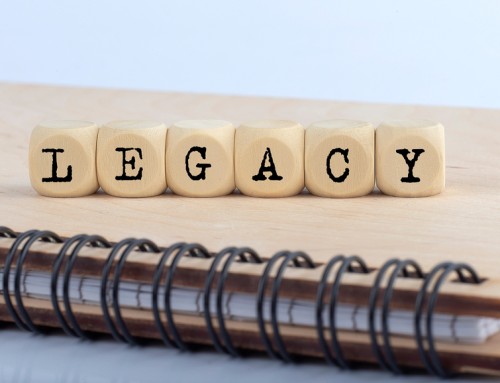Your home is more than just a valuable asset. It’s a place where memories are made and where years of hard work have been invested. Naturally, you want to ensure that it transitions smoothly to your child when the time comes.
At first glance, adding your child to the property title may seem like a simple way to avoid probate. However, this decision can trigger a chain reaction of unexpected consequences, from financial risks to legal complications. Before you take this step, it’s important to understand the potential pitfalls and explore better alternatives.
1. Tax Troubles: Capital Gains and Gift Tax Implications
When it comes to transferring property, taxes can have a major impact on your child’s financial future. Adding their name to your home’s title might feel like a straightforward solution, but it can create tax burdens that are anything but simple.
Capital Gains Tax: A Costly Surprise
If your child inherits your home after your passing, the tax basis (the value used to calculate gains for tax purposes) is adjusted to the property’s market value at the time of your death—a provision known as the “step-up in basis.” This adjustment can save your child tens or even hundreds of thousands of dollars in capital gains taxes if they decide to sell the property.
However, by adding your child to the title now, they inherit your original purchase price as the basis. For example, if you bought your home decades ago for $150,000 and it’s now worth $600,000, your child would owe taxes on the $450,000 gain when selling the home. This financial burden can be completely avoided with proper planning.
Gift Tax Consequences
Adding your child to the title might also trigger gift tax implications. Transferring a portion of your home’s ownership is considered a gift, and if the value exceeds the annual gift tax exclusion (approximately $19,000 in 2025), you may be required to file a gift tax return.
Even if you don’t owe taxes immediately, this action reduces your lifetime estate and gift tax exemption. For families with substantial estates, this could complicate long-term planning and result in higher taxes down the road.
2. Financial Risks Beyond Your Control
Once your child’s name is on the title, your property becomes legally tied to their financial circumstances. While you might trust your child’s intentions, life can throw unexpected challenges their way.
For instance, if your child faces financial troubles—like bankruptcy, lawsuits, or divorce—their share of your home could be considered an asset that creditors or legal disputes can target. Imagine finding yourself in a situation where your home is at risk because of circumstances completely beyond your control.
Here’s an example: If your child owns a business that experiences financial hardship, creditors may claim their ownership interest in your home to settle debts. Similarly, in the event of a divorce, your property could become entangled in a legal battle, leaving you in a precarious position.
By adding your child to the title, you’re exposing your home to risks that might otherwise have been avoidable.
3. Loss of Autonomy Over Your Property
When your child becomes a co-owner of your home, your ability to make independent decisions about the property diminishes. Any major actions—such as selling, refinancing, or taking out a loan—will require your child’s agreement.
While this may not seem problematic in the short term, co-ownership can become a source of conflict over time. Your child’s circumstances or priorities might change, and even well-meaning family members can disagree on what’s best for the property.
For instance, if you decide to sell your home to downsize or relocate, your child may have other ideas about keeping the property or delaying its sale. This can create unnecessary tension and limit your options during a stage of life when flexibility is essential.
Maintaining sole ownership ensures that you remain in full control of your home, safeguarding your ability to make decisions that align with your needs.
Probate Isn’t the Enemy—But There Are Better Solutions
The primary motivation for adding a child to the property title is often to avoid probate, a legal process for distributing assets after someone’s death. While it’s true that probate can be time-consuming and costly, the risks of co-ownership often outweigh the benefits.
The good news? There are smarter and safer ways to transfer your home to your child without the headaches of probate.
- Revocable Living Trust: Placing your home in a living trust allows you to maintain full control during your lifetime. Upon your passing, the trust seamlessly transfers the property to your child without going through probate. This option also preserves the step-up in basis, minimizing taxes.
- Transfer on Death Deed: In Arizona and some other states, you can file a transfer on death (TOD) deed, which names a beneficiary who will inherit the property after your passing. This keeps the property out of probate while ensuring you retain sole ownership during your lifetime.
These solutions offer a more secure way to pass your home to your child, avoiding unnecessary tax burdens and protecting your control over your property.
Plan Wisely for Peace of Mind
Your home is one of the most significant assets you’ll ever own, and deciding how to pass it on to your loved ones deserves careful consideration. While this article has highlighted the potential pitfalls of adding your child to the property title, it’s important to take proactive steps to avoid these unintended financial and legal consequences.
Rather than relying on quick fixes that might expose your property to unnecessary risks, consider consulting with an experienced estate planning attorney to explore practical and effective alternatives. Tools like living trusts or transfer-on-death deeds can help you maintain control, protect your home’s value, and ensure a seamless transfer to your family when the time comes.
At KEYTLaw, we are dedicated to helping clients create tailored estate plans that align with their unique needs and goals. Let us guide you in making informed decisions to safeguard your home and secure your family’s future. Contact us today to take the next step toward protecting your legacy with confidence.






